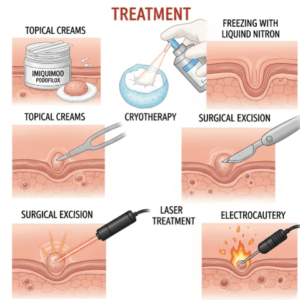Overview
Hepatitis C is a viral infection caused by the hepatitis C virus (HCV), affecting the liver and potentially leading to chronic liver disease. In Korea, hepatitis C prevalence is relatively low but remains a concern due to its silent progression and risk of liver cirrhosis and hepatocellular carcinoma. Early detection and antiviral therapy are essential for successful management.
What is Hepatitis C?
Hepatitis C is a bloodborne viral infection that primarily affects the liver. Many people remain asymptomatic for years, while chronic infection can lead to severe liver damage. Transmission occurs mainly through exposure to infected blood, including medical procedures, intravenous drug use, or less commonly, sexual contact.
Symptoms
- Fatigue and weakness
- Loss of appetite
- Nausea or vomiting
- Abdominal discomfort in the upper right quadrant
- Jaundice (yellowing of skin and eyes, in some cases)
- Dark urine
- Muscle or joint pain
Causes
- Infection with hepatitis C virus
- Blood transfusions or organ transplants before rigorous screening
- Sharing needles or syringes
- Exposure to contaminated medical instruments
- Rare sexual or perinatal transmission
Risk Factors
- History of blood transfusions or organ transplants before 1992
- Intravenous drug use
- Chronic hemodialysis
- Healthcare workers exposed to blood
- High-risk sexual activity
- Family history of hepatitis C infection
Complications
If untreated, hepatitis C can result in:
- Chronic hepatitis and ongoing liver inflammation
- Liver cirrhosis
- Hepatocellular carcinoma (liver cancer)
- Liver failure requiring transplantation
- Extrahepatic complications, such as kidney disease or diabetes
Prevention
- Avoid sharing needles or syringes
- Ensure safe blood transfusions and medical procedures
- Follow strict infection control practices in healthcare settings
- Screening high-risk individuals for early detection
- No vaccine currently available, so preventive measures focus on reducing exposure
Treatment Options in Korea
Korea offers highly effective treatments for hepatitis C with modern antiviral therapies:
- Direct-acting antivirals (DAAs):
- Medications that target the virus and achieve cure rates over 95%
- Short treatment duration (8–12 weeks) with minimal side effects
- Monitoring:
- Blood tests to monitor viral load and liver function
- Management of complications:
- Regular imaging and check-ups to detect cirrhosis or liver cancer
- Liver transplantation:
- For advanced liver disease or liver failure, available at major hospitals such as Samsung Medical Center, Seoul National University Hospital, and Asan Medical Center
- Lifestyle guidance:
- Abstaining from alcohol, maintaining a healthy diet, and monitoring comorbidities
- Public health measures:
- Screening programs and education on safe practices to reduce transmission
With early diagnosis and direct-acting antiviral therapy, patients in Korea can achieve complete eradication of hepatitis C and prevent long-term liver complications.













